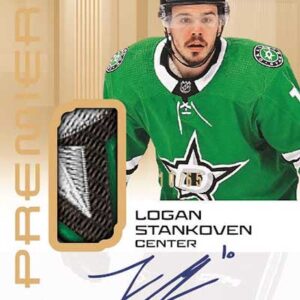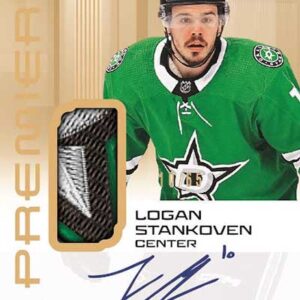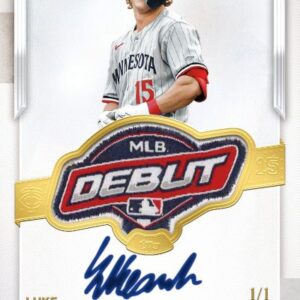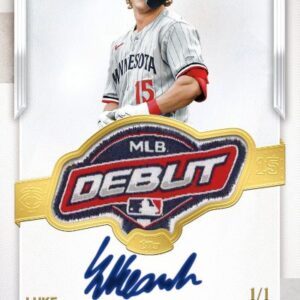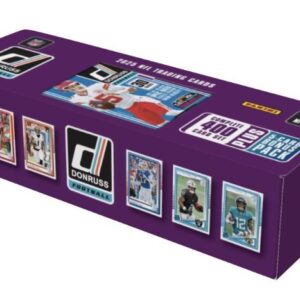The vivid world of sports memorabilia has recently been hit with a scandal so shocking it could rival the controversies of major league pitch tampering or even a dramatic underdog victory on Super Bowl night. This week, authorities in Indiana dropped a bombshell that may have lasting repercussions in collectors’ circles worldwide. At the center of this scandal is Brett Lemieux, a name that until recently was synonymous with high-profile autograph dealing. However, it appears his legacy, much like a fraudulent player’s stats, wasn’t built on authentic foundations.
Lemieux, aged 45, found himself under intense scrutiny in the midst of a police investigation targeting what has now been labeled as possibly one of the most expansive counterfeit memorabilia operations the market has ever witnessed. The drama unfolded in Westfield when police raided the premises linked to Lemieux, only to discover him dead from a self-inflicted gunshot wound. This tragic turn of events occurred as law enforcement swooped in with a search warrant in hand, seeking evidence of a multi-million dollar fraud operation profiting off counterfeit sports memorabilia.
Rumors had already been stirring, but the bubbling cauldron of speculations overflowed after a startling confession was posted under Lemieux’s name in the Facebook group “Autographs 101”. This post was as jolting as a buzzer-beating, over-time win, laying claim to manufacturing and distributing over four million fake sports memorabilia items, leading to explosive sales figures reaching an astounding $350 million. For industry insiders and collectors, the ramifications of these revelations have been akin to waking up to discover your prized investment equivalent to monopoly money – utterly worthless.
Operating under the guise of a business known as Mister Mancave, Lemieux had projected the image of a vast inventory, boasting “the largest framed jersey inventory on the web.” However, the façade didn’t hold up to scrutiny. Despite claiming a Columbus, Ohio base, any physical storefront remained as elusive as a streaker at a televised sports event. Records, however, confirm modifications to the business between 2018 and 2023, incorporated not in Ohio, but twice in Indiana.
Lemieux’s alleged confession detailed a sophisticated ruse, focusing heavily on replicating the hologram stickers used by leading authentication services such as Panini, Fanatics, Tri-Star, and others. Notably, in the wake of Kobe Bryant’s untimely passing in 2020, thousands of counterfeit memorabilia bearing Bryant’s purported authentic signature had allegedly flooded the market, each marked with bogus authentication holograms convincing enough to deceive collectors and vendors alike.
This wasn’t a caper confined to basketball collectables either. Lemieux’s reach, ambitious as a scrambler evading a tackle, touched other sports as well. His website showcased items like an Aaron Judge-signed baseball, supposedly legit with a Fanatics hologram, tagged at $399—a significant undercut from the prevailing $699 price tag on legitimate platforms.
In response, industry behemoths like Fanatics have had to recalibrate their defenses in the face of such egregious counterfeiting. Overhauling their hologram systems two years ago was part of safeguarding consumer trust, with ongoing collaborations with law enforcement, including former FBI specialists, aiming to weed out fraudulent memorabilia and stem the tide of counterfeiting.
Despite skepticism clouding some of Lemieux’s heftiest claims—one rival dismissed the supposed $350 million sales as implausible—the damages are indisputable. Experts, akin to autograph sleuths, acknowledge the heightened challenges posed by modern forgeries, which emulate authenticity with unnerving precision. Popular among these methods are autopens, their handiwork a nightmare for those tasked with telling apart genuine from guile.
While some industry insiders contend that Lemieux’s downfall feels like inevitable destiny given his offerings of signatures supposedly from long-retired athletes, the shrapnel from this scandal is far-reaching. Named within the incisive “manifesto” released by Lemieux are other dealers like Dominique Ball from Indiana and Nickolas Litscher from Wisconsin, both vociferously denying ties to the fraudulent operations. Litscher, in particular, is zealously eyeing legal recourse in light of accusations swirling around his name.
It’s believed that Lemieux’s syndicate operated under numerous guises, transforming like a chameleon under various aliases including Ultimate Sports and Signature Dog, potentially strewn across diverse selling arenas. As the long arm of the law continues its unraveled journey, collectors are now questioning the integrity of their collections, wondering whether their cherished possessions hold true value or if they’ve been duped in this sports ploy.
The authenticity of memorabilia, much like the integrity of a beloved sports franchise, is paramount. The scandal rings alarm bells across the industry, demanding heightened vigilance and adaptably robust fraud prevention methods. This defrauding saga could ignite a revolution in the sports collectibles market leading to improved verification processes and a stronger defense against fraudulent activities. Only time will tell how these measures will unfold in a landscape forever altered by Brett Lemieux’s infernal revelations.
